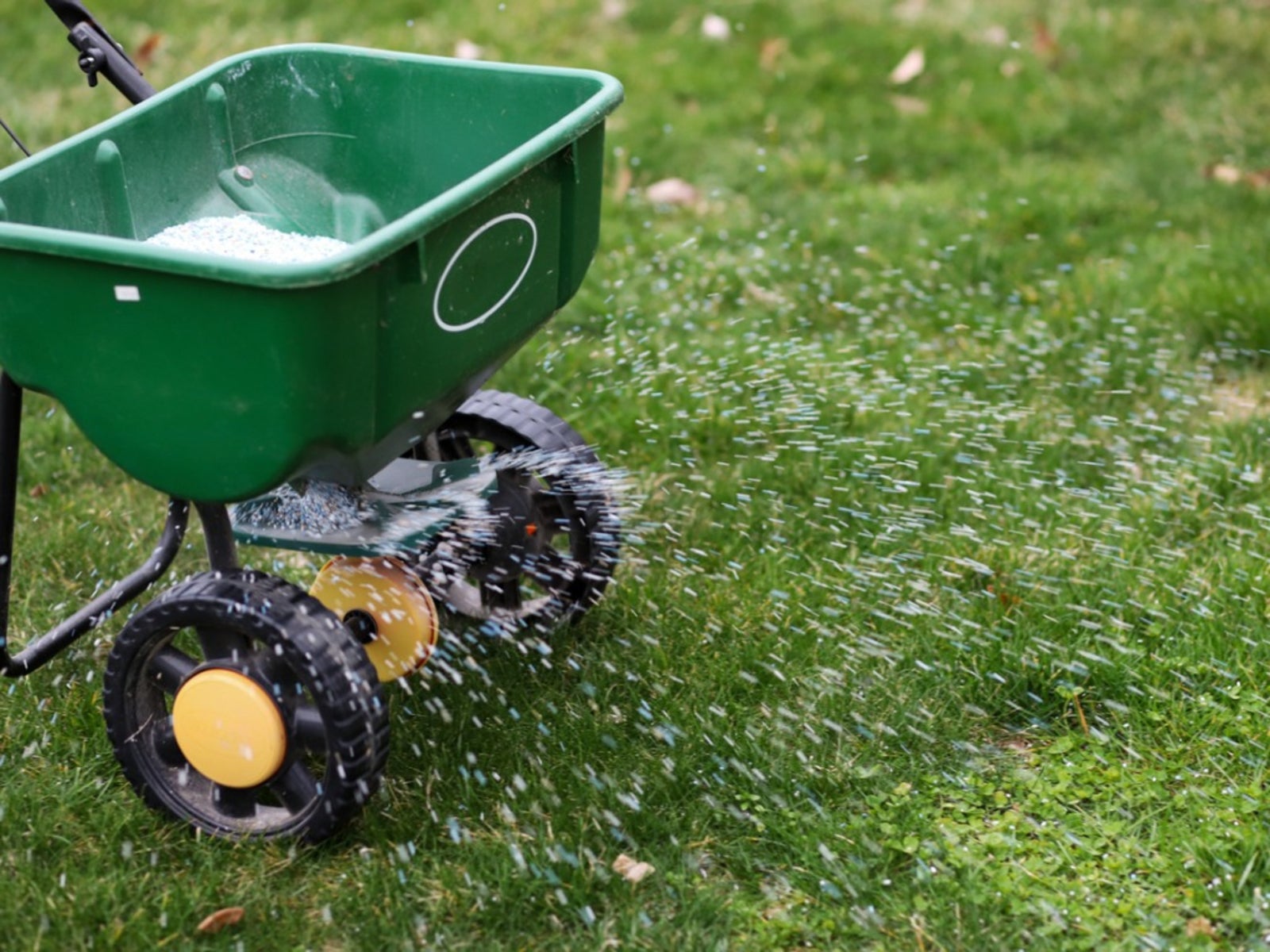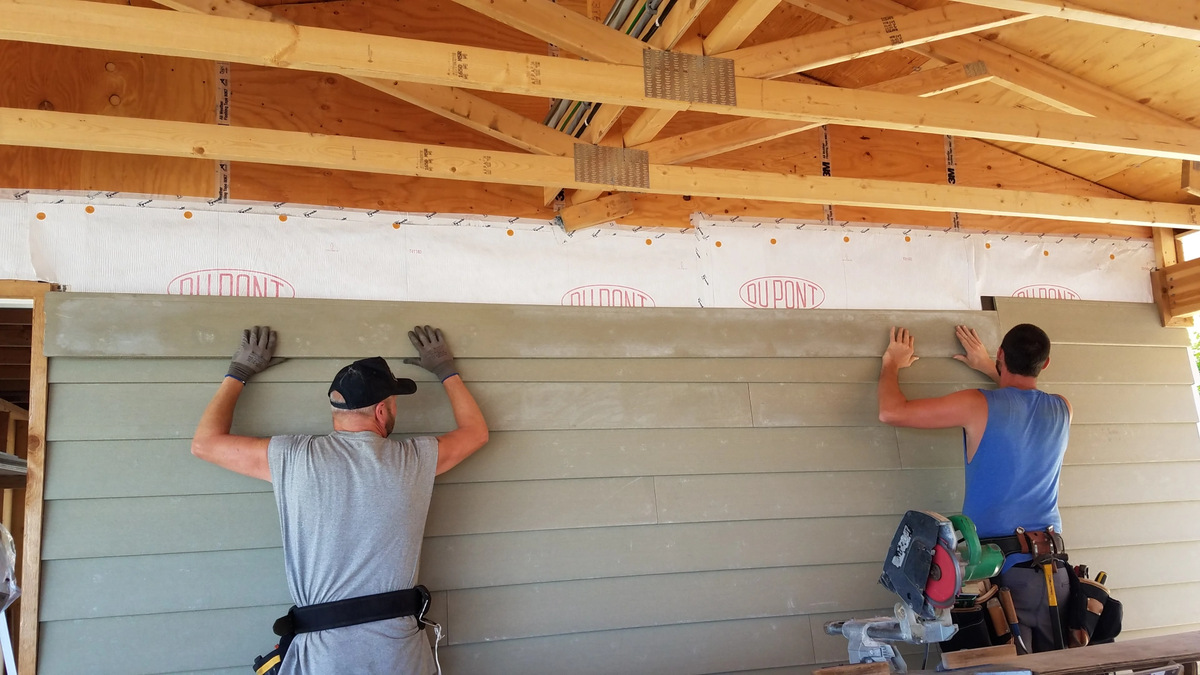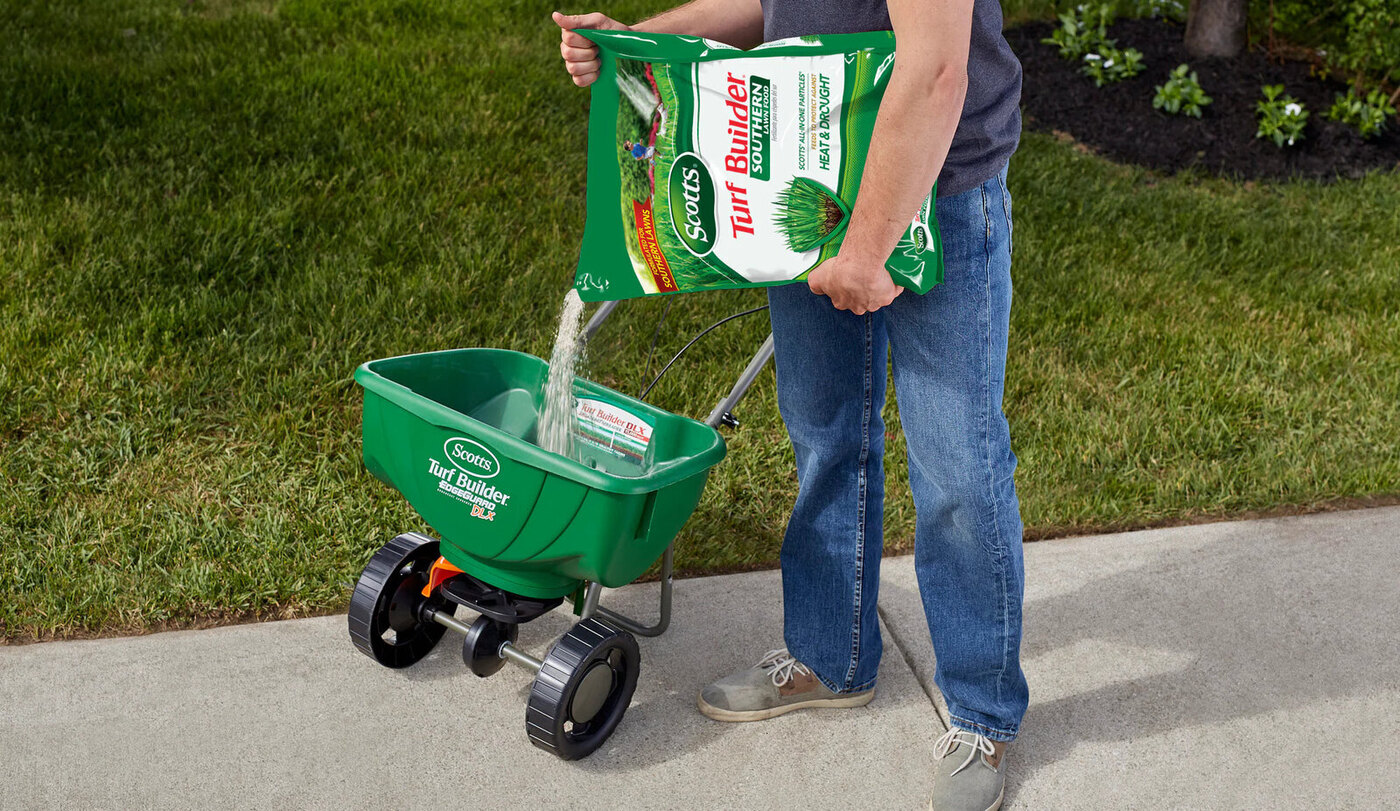Home>Garden Essentials>How To Bid For Commercial Lawn Care


Garden Essentials
How To Bid For Commercial Lawn Care
Modified: September 1, 2024
Learn how to bid for commercial lawn care and grow your garden maintenance business with our expert tips and strategies. Maximize your profits and attract new clients today!
(Many of the links in this article redirect to a specific reviewed product. Your purchase of these products through affiliate links helps to generate commission for Storables.com, at no extra cost. Learn more)
Introduction
Welcome to the exciting world of commercial lawn care! If you have a green thumb and a passion for outdoor spaces, bidding for commercial lawn care contracts can be a rewarding and profitable venture. This article will guide you through the process of preparing and submitting competitive bids to secure valuable commercial clients.
Commercial lawn care involves providing maintenance and landscaping services to businesses, organizations, and public spaces. These clients often have large properties that require regular upkeep to maintain a professional appearance. As a commercial lawn care provider, your responsibilities may include mowing, edging, fertilizing, weed control, trimming, and overall landscape management.
Before diving into the bidding process, it’s essential to understand the commercial lawn care industry and its unique requirements. While residential lawn care focuses on individual homeowners’ needs, commercial properties have different expectations and budgets. By tailoring your approach to meet these specific demands, you can position yourself as a professional and reliable service provider.
Researching and assessing potential clients is a crucial step in the bidding process. Identify businesses and organizations in your target market who may require lawn care services. Look for properties that match your capabilities and align with your business goals. Assess their current landscaping needs, the size of their property, and any specific requirements they may have. This information will help you understand their expectations and tailor your bid accordingly.
Once you have identified potential clients, it’s time to determine pricing and cost estimates. Consider factors such as the size of the property, frequency of service, and additional services required. Research industry benchmarks and competitive rates in your area to ensure your pricing is competitive yet profitable. It’s crucial to strike a balance between affordability for the client and profitability for your business.
Having a compelling bid proposal is key to standing out from the competition. Your proposal should outline the services you will provide, the scope of work, pricing details, and any additional value-added services you can offer. Use professional language and ensure your bid is well-organized and easy to understand. Highlight your experience, qualifications, and any unique selling points that set you apart from other bidders.
Presenting and communicating your bid effectively is essential to making a strong impression on potential clients. Schedule a meeting or set up a presentation to go over the details of your bid. Explain your approach, address any questions or concerns the client may have, and demonstrate your expertise and enthusiasm for providing high-quality lawn care services.
Following up and negotiating contracts is the next step once you have submitted your bid. Keep in touch with the client to show your interest and willingness to negotiate any contractual terms. By maintaining open lines of communication, you can build trust and increase the likelihood of securing the contract.
Delivering exceptional lawn care services is vital in retaining commercial clients and building a strong reputation in the industry. Ensure your crew is well-trained and equipped with the necessary tools and materials to provide top-notch service. Consistency, efficiency, and attention to detail will help you exceed client expectations and maintain long-term relationships.
Key Takeaways:
- Understanding the unique needs of commercial clients and tailoring bids to meet those needs is crucial for success in the commercial lawn care industry.
- Building strong customer relationships, delivering high-quality services, and strategic business management are essential for long-term success and growth in the commercial lawn care business.
Read more: How Do Lawn Care Businesses Find Bids
Understanding the Commercial Lawn Care Industry
The commercial lawn care industry is a fast-growing sector that offers numerous opportunities for entrepreneurs and professionals in the landscaping field. Understanding the dynamics of this industry is crucial for successfully bidding on and securing lucrative commercial contracts.
One of the key differences between residential and commercial lawn care is the scale of the properties involved. Commercial properties, such as office buildings, retail centers, industrial parks, and public spaces, are typically larger and require more extensive maintenance compared to residential yards. This means that commercial lawn care providers must have the resources and expertise to handle larger areas efficiently and effectively.
In addition to the size of the properties, commercial clients often have specific requirements and expectations. They are looking for reliable providers who can maintain a professional appearance for their business or organization. This includes keeping lawns neatly mowed, edges well-trimmed, and landscapes free from weeds or debris. The ability to provide additional services, such as landscaping enhancements, irrigation system maintenance, and pest control, can also give you an edge in the competitive commercial lawn care market.
Another important aspect of the commercial lawn care industry is the need for regular and consistent service. Commercial clients typically require year-round lawn maintenance, regardless of the weather conditions or season. This requires scheduling and organizing crews to ensure timely service delivery, even during busy periods or inclement weather. The ability to provide reliable and consistent service is crucial in building long-term relationships with commercial clients and securing repeat business.
Networking and building relationships within the industry are also key to success in commercial lawn care. Attending industry events, joining professional associations, and collaborating with other landscaping professionals can help you stay updated on industry trends and foster partnerships that can lead to referral business or joint projects. Establishing a solid reputation for quality work and professionalism is vital in attracting new clients and standing out in a competitive market.
Lastly, it’s important to understand the financial aspects of the commercial lawn care industry. Bidding for and securing commercial contracts often involves longer-term contracts and higher invoice values compared to residential projects. However, it’s essential to carefully assess costs such as equipment, labor, and overhead to ensure profitability. Conducting thorough financial analysis and keeping track of expenses can help you accurately estimate and maintain margins on your commercial lawn care projects.
By understanding the unique attributes and requirements of the commercial lawn care industry, you can position yourself as a knowledgeable and reliable service provider. This knowledge will enable you to tailor your bids, provide exceptional service, and grow your business in this lucrative sector of the landscaping industry.
Researching and Assessing Potential Clients
When it comes to bidding for commercial lawn care contracts, thorough research and assessment of potential clients are pivotal for success. By understanding the needs and preferences of your target clients, you can tailor your bids and position yourself as the ideal service provider. Here are essential steps to assist you in researching and assessing potential clients.
Start by identifying your target market. Determine the types of businesses or organizations that are likely to require commercial lawn care services. This could include office buildings, retail centers, industrial parks, healthcare facilities, schools, and municipalities. Focus your research efforts on these specific sectors to maximize your chances of securing relevant contracts.
Once you have identified your target market, take the time to research and gather information about potential clients within that market segment. Use online directories, business listings, and industry associations to find leads. Local Chamber of Commerce directories can also be valuable resources for finding businesses in your area.
As you compile a list of potential clients, assess each one based on their needs and the scope of work required. Consider factors such as the size of their property, the complexity of their landscaping, and any specific requirements they may have. Larger properties may require more intensive maintenance and additional services, such as landscaping enhancements or irrigation system maintenance.
Research the current state of their landscaping. Look for signs of neglect or areas that require improvement. This will not only help you understand their needs but also provide an opportunity to showcase your expertise and emphasize the value you can bring to their property.
Review the online presence of potential clients. Visit their websites and social media profiles to gain insight into their brand identity, company culture, and commitment to maintaining an attractive outdoor space. This information can be valuable when crafting your bid proposal and tailoring your services to their specific needs.
Take note of any existing relationships or partnerships they have with other landscaping or maintenance companies. While it may seem challenging to penetrate a market where a client already has a service provider, there is always a possibility of developing a relationship with them in the future. Networking and establishing connections within the industry can help open doors to opportunities.
Consider the financial viability of potential clients. Assess their stability, growth potential, and ability to pay for the services you offer. It’s crucial to work with clients who can afford your services and are likely to provide a consistent stream of revenue.
Once you have gathered all the necessary information, prioritize potential clients based on various factors, such as the scope of work, long-term potential, or alignment with your business goals and values. This will help you focus your efforts on the most valuable opportunities and increase your chances of success.
By thoroughly researching and assessing potential clients, you can understand their needs, tailor your bids, and position yourself as the ideal commercial lawn care provider. This proactive approach will enhance your chances of securing contracts and building long-term relationships with valuable clients.
Determining Pricing and Cost Estimates
When bidding for commercial lawn care contracts, determining pricing and cost estimates is a critical step in ensuring profitability while remaining competitive in the market. By carefully assessing the various factors that influence pricing, you can develop accurate and attractive bids that reflect the value of your services. Here are some essential considerations for determining pricing and cost estimates.
Start by evaluating the size and complexity of the property. Larger properties typically require more time, manpower, and resources to maintain. Consider the total square footage of the lawn, the number of landscaping beds, and any additional features, such as walkways, parking areas, or outdoor amenities. A thorough understanding of the property’s characteristics will enable you to estimate the amount of work required and allocate resources accordingly.
Next, assess the frequency of service required. Some commercial clients may prefer weekly maintenance, while others may need bi-weekly or monthly visits. The frequency of service will impact your costs, as more frequent visits will require additional labor and resources. Ensure that your pricing accurately reflects the frequency of service required, while maintaining a profitable margin.
Additional services can also affect pricing. While basic lawn care services like mowing, edging, and trimming are essential, clients may also require additional services such as fertilization, weed control, pest control, and landscape enhancements. Evaluate the demand for these services in your target market and determine the costs associated with providing them. Incorporate these costs into your pricing structure to offer comprehensive packages that meet the needs of potential clients.
Consider the local market rates and pricing benchmarks. Research the prices charged by other commercial lawn care providers in your area to ensure that your rates are competitive. However, avoid underpricing your services solely to win contracts, as it can lead to unsustainable profitability. Aim for a balance between offering competitive rates and providing high-quality service.
Factor in your overhead expenses, including labor, equipment maintenance, fuel costs, insurance, and administrative overhead. It is essential to accurately account for these costs to ensure that your pricing covers all expenses and leaves room for profitability.
Avoid the temptation to solely base your pricing on your competitors’ rates. Instead, focus on highlighting the unique value you bring to the table. Emphasize your experience, qualifications, reliability, and any additional value-added services you offer. Differentiate yourself from the competition by showcasing the high quality of your work, professionalism, and commitment to client satisfaction.
Lastly, consider the long-term potential and relationship with the client. While securing a contract at a lower price may seem attractive initially, consider the potential for upselling additional services and securing long-term repeat business. Building a strong relationship with a commercial client can lead to future opportunities and referrals.
When determining pricing and cost estimates for your commercial lawn care bids, take into account the size and complexity of the property, the frequency of service required, additional services, local market rates, overhead expenses, and long-term potential. By evaluating these factors strategically, you can develop pricing that reflects the value of your services and positions your business for success in the competitive commercial lawn care market.
Developing a Compelling Bid Proposal
A compelling bid proposal is essential for standing out from the competition and impressing potential clients in the commercial lawn care industry. It showcases your professionalism, expertise, and commitment to delivering high-quality services. Here are some key steps to help you develop a compelling bid proposal.
Start by introducing your company and providing a brief overview of your experience in the industry. Highlight any certifications, qualifications, or awards that demonstrate your expertise and credibility. This information establishes trust and sets the tone for the rest of the proposal.
Clearly outline the scope of work you will provide. Detail the specific lawn care services you will perform, such as mowing, edging, trimming, fertilization, weed control, pest control, and any additional services requested by the client. Include specific information about the frequency of service and the duration of the contract, if applicable.
Provide a breakdown of the pricing structure. Be transparent and itemize the costs associated with each service. This allows the client to understand how the total price is calculated and ensures there are no surprises later on. Consider offering different package options to cater to the diverse needs and budgets of potential clients.
Highlight the unique value and benefits of choosing your company. Emphasize your commitment to quality, reliability, and customer satisfaction. Showcase any additional perks or value-added services you can offer, such as landscape enhancements, irrigation system maintenance, or personalized customer support. Clearly communicate the benefits of your services and how they address the specific needs of the client.
Include a timeline or schedule that outlines when each service will be performed. This provides transparency and reassurance to the client, ensuring they understand how and when you will maintain their property. If there are any seasonal or weather-related considerations, make sure to mention them in this section.
Address any potential concerns or questions the client may have. Anticipate common objections and provide thorough explanations or solutions to overcome them. This demonstrates your professionalism and shows that you have considered all aspects of the project.
Outline your communication and customer service policies. Establishing clear lines of communication is crucial for maintaining a positive and productive relationship. Describe how you will communicate updates, handle requests or complaints, and address any issues that may arise during the contract period.
Include testimonials or case studies from satisfied clients. Social proof is a powerful tool in building trust and credibility. Include feedback or success stories that highlight the positive experiences of past clients, demonstrating your ability to deliver exceptional results.
Finally, conclude your bid proposal with a call to action and contact information. Encourage the client to reach out with any questions or to discuss the proposal further. Provide multiple contact methods, such as phone, email, and website, to make it convenient for them to reach you.
By following these steps and taking a strategic approach to developing your bid proposal, you can craft a compelling document that showcases your expertise, credibility, and dedication to meeting the specific needs of potential clients. Remember to review and personalize each bid proposal to ensure it aligns with the unique requirements of each client.
Presenting and Communicating Your Bid
Presenting and communicating your bid effectively is crucial for making a strong impression on potential clients in the commercial lawn care industry. It allows you to showcase your professionalism, expertise, and understanding of their needs. Here are some essential tips for presenting and communicating your bid successfully.
First and foremost, schedule a meeting with the potential client to present your bid in person. A face-to-face meeting provides an opportunity to establish a personal connection and demonstrate your enthusiasm for the project. It also allows you to address any questions or concerns the client may have directly.
Prepare a well-structured and visually appealing presentation to support your bid. Use professional slides or visual aids that highlight the key points of your proposal. Ensure that the presentation is clear, concise, and easy to follow. Keep the design simple and avoid overwhelming the client with excessive visuals or text.
Start the presentation by introducing yourself and your company. Briefly summarize your experience, qualifications, and why you are the best choice for the project. Establishing your credibility from the start will capture the client’s attention and build trust.
Clearly outline the scope of work that your bid covers. Summarize the services you will provide, the schedule for performing these services, and any additional value-added services included in your proposal. Be concise yet thorough in explaining what the client can expect from your services.
Highlight the unique selling points of your bid. Emphasize how your proposal addresses the specific needs and goals of the client. Articulate the benefits and advantages they will receive by choosing your company over the competition. Use specific examples and case studies to illustrate the successful outcomes of similar projects.
While presenting, actively listen to the client’s feedback and concerns. Be prepared to address any questions or objections they may have. Show empathy and understanding and provide clear and concise explanations to alleviate any concerns. This will demonstrate your responsiveness and commitment to meeting their needs.
Be prepared to negotiate and adjust your bid if necessary. Be open to discussing alternative options or modifications based on the client’s preferences or budget. Showing flexibility and willingness to work with the client’s needs can strengthen your chances of securing the contract.
Maintain a professional and confident demeanor throughout the presentation. Speak clearly and confidently, articulating your points effectively. Use positive and engaging body language, such as making eye contact, standing tall, and using appropriate gestures. Projecting confidence will inspire trust and convey that you are capable of delivering quality work.
After presenting your bid, summarize the key points and ask for the client’s feedback. Give them time to review the proposal and make any further inquiries. Express your availability to discuss any concerns or questions they may have.
Follow up with the client after the presentation. Send a personalized thank-you email or hand-written note to express your gratitude for their time and consideration. Reiterate your interest in the project and your willingness to address any additional questions or concerns they may have. This follow-up communication demonstrates professionalism and keeps you at the forefront of their decision-making process.
By effectively presenting and communicating your bid, you can leave a positive and lasting impression on potential clients. Your professionalism, expertise, and understanding of their needs will set you apart from the competition and increase your chances of securing the commercial lawn care contract.
When bidding for commercial lawn care, make sure to thoroughly assess the size and condition of the property, consider the frequency of maintenance required, and factor in the cost of materials and labor to provide an accurate and competitive bid.
Following Up and Negotiating Contracts
Following up and negotiating contracts are crucial steps in the commercial lawn care bidding process. Once you have submitted your bid, it’s important to maintain open lines of communication and actively engage with potential clients to secure the contract. Here are some essential tips for following up and negotiating contracts effectively.
1. Follow up promptly: After submitting your bid, send a follow-up email or make a phone call to the client within a few days. Express your gratitude for the opportunity to bid on their project and reiterate your interest in working with them. This step shows your professionalism and commitment to the project.
2. Address any concerns or questions: During the follow-up conversation, ask the client if they have any concerns or questions regarding your bid. Be attentive and receptive to their feedback, and provide thorough and satisfactory answers. This helps build trust and demonstrates your willingness to address their needs.
3. Be open to negotiations: Negotiating contracts is a common practice in the commercial lawn care industry. Clients may have specific requirements or budgetary constraints that need to be considered. Be flexible and open to discussing alternative options or modifications to accommodate their needs. However, also ensure that the negotiated terms are fair and reasonable for your business.
4. Clearly define contract terms: During the negotiation process, ensure that all contract terms are clearly defined and agreed upon by both parties. This includes the scope of work, duration of the contract, payment terms, and any additional services or responsibilities. Having a written contract that outlines these terms protects both you and the client and avoids misunderstandings in the future.
5. Review contract documents carefully: Before finalizing the contract, carefully review all documents to ensure accuracy and compliance with your bid proposal. Pay attention to the details, such as pricing, service schedule, and any specific terms or conditions. Seek legal advice if necessary to ensure that the contract protects your rights and aligns with industry standards.
6. Establish a professional and respectful relationship: Throughout the contract negotiation process, maintain a professional and respectful demeanor. Actively listen to the client’s concerns and perspectives, and demonstrate your willingness to find mutually agreeable solutions. Building a positive relationship from the outset sets the tone for a successful partnership.
7. Document and record all changes or amendments: If any changes or amendments are made to the initial bid proposal during the negotiation process, ensure that they are documented and recorded in writing. This prevents misunderstandings and provides a clear record of the agreed-upon terms.
8. Provide a final proposal or agreement: Once the contract negotiations are complete, provide the client with a final proposal or agreement that encompasses all the agreed-upon terms. This document should be signed by both parties and serve as the official contract for the project.
9. Maintain regular communication: Once the contract is signed, maintain regular communication with the client to ensure a smooth transition and ongoing collaboration. Provide updates on the progress of the work, address any concerns promptly, and promptly respond to any inquiries or requests. This proactive approach helps build trust and strengthen the client relationship.
By following up promptly, addressing concerns, being open to negotiations, clearly defining contract terms, maintaining professionalism, and documenting all changes, you can successfully follow up and negotiate contracts in the commercial lawn care industry. By establishing clear expectations and maintaining open lines of communication, you set the foundation for a successful project and a harmonious client relationship.
Delivering High-Quality Lawn Care Services
Delivering high-quality lawn care services is essential for establishing a stellar reputation in the commercial lawn care industry. It not only ensures client satisfaction but also positions you as a reliable and trustworthy service provider. Here are some key principles to consider when delivering high-quality lawn care services.
1. Establish clear expectations: From the outset, clearly communicate with your clients about the scope of work, schedule, and specific services you will provide. Ensure that both parties are on the same page and have a mutual understanding of the project requirements.
2. Invest in the right equipment and tools: To deliver high-quality lawn care, invest in high-quality equipment and tools that are suitable for maintaining commercial properties. This includes mowers, trimmers, edgers, blowers, and other essential tools. Regularly maintain and update your equipment to ensure optimal performance.
3. Employ skilled and trained professionals: Hire and train a team of skilled professionals who have the knowledge and expertise to perform lawn care tasks efficiently and effectively. Provide ongoing training and education to stay updated on the latest industry trends, techniques, and best practices.
4. Prioritize safety: Safety should always be a top priority. Ensure that your team members follow safety protocols and are equipped with the necessary personal protective equipment (PPE) while working. Regularly inspect equipment for any potential hazards or malfunctions and promptly address any safety concerns.
5. Maintain consistent and reliable scheduling: Adhere to the agreed-upon schedule and deliver services promptly as promised. Consistency and reliability are essential in building trust and satisfaction with your clients. Communicate any necessary adjustments or changes in advance to avoid surprises or disruptions in service.
6. Provide thorough and comprehensive lawn maintenance: Perform all agreed-upon lawn care tasks to a high standard. This includes mowing grass at the appropriate height, edging and trimming neatly, removing weeds and debris, fertilizing as needed, and providing precise irrigation. Consistently monitor the health of the lawn and address any issues promptly.
7. Pay attention to detail: Focus on the small details that can make a big difference in the overall appearance of the lawn. Ensure clean edges, tidy hardscape areas, and well-defined landscape borders. Take pride in your work and aim for perfection in every aspect of the lawn care services you provide.
8. Utilize environmentally friendly practices: Implement sustainable and environmentally friendly practices in your lawn care services. Use organic fertilizers and natural pest control methods whenever possible. Minimize water usage by implementing efficient irrigation systems and adhering to local water conservation guidelines.
9. Regularly communicate and provide updates: Keep open lines of communication with your clients throughout the project. Provide regular updates on the progress of the work and address any concerns or questions promptly. This demonstrates your commitment to customer satisfaction and ensures transparency throughout the process.
10. Seek feedback and continuously improve: Regularly seek feedback from your clients to gauge their satisfaction with your lawn care services. Actively listen to their suggestions and implement necessary improvements to enhance the quality of your work. This constant feedback loop allows you to continuously improve and surpass client expectations.
By implementing these principles, you can deliver high-quality lawn care services that exceed client expectations. Consistency, attention to detail, skilled professionals, open communication, and a commitment to excellence will set your commercial lawn care business apart and establish a strong reputation in the industry.
Building and Maintaining Customer Relationships
Building and maintaining strong customer relationships is crucial for long-term success in the commercial lawn care industry. By fostering positive connections with your clients, you can enhance their satisfaction, secure repeat business, and generate valuable referrals. Here are some key strategies for building and maintaining customer relationships.
1. Excellent Communication: Establish a foundation of open and effective communication with your clients. Respond promptly to their inquiries, address any concerns or issues promptly, and provide updates on the progress of their lawn care projects. Regularly check in with clients to ensure their satisfaction and to show that you value their opinions and feedback.
2. Personalized Service: Treat each client as an individual and tailor your services to their specific needs and preferences. Take the time to understand their goals and expectations, and proactively suggest services or enhancements that can benefit their property. Demonstrating a genuine interest in their unique lawn care requirements will strengthen your relationship and loyalty.
3. Consistency and Reliability: Consistently deliver high-quality lawn care services according to the agreed-upon schedule. Be reliable and dependable, ensuring that your team arrives on time and completes the work efficiently. Consistency builds trust and confidence in your ability to maintain their property effectively.
4. Go the Extra Mile: Strive to exceed client expectations and offer exceptional value through your services. Look for opportunities to go above and beyond by providing small gestures or additional services that demonstrate your commitment to customer satisfaction. This could include surprise enhancements, seasonal decorations, or personalized recommendations to enhance the overall appearance of their landscape.
5. Regular Site Inspections and Assessments: Schedule regular site inspections to assess the condition of your clients’ properties and identify any potential issues or areas for improvement. Discuss your findings with the clients and provide recommendations to keep their landscapes healthy and attractive. These assessments demonstrate your proactive approach and dedication to long-term property maintenance.
6. Acknowledge and Respond to Feedback: Actively seek feedback from your clients and genuinely listen to their suggestions or concerns. Respond promptly and tactfully to any feedback received, addressing any issues and offering solutions or improvements where necessary. Showing that you value their feedback and take action demonstrates your commitment to their satisfaction.
7. Develop Personal Relationships: Take the time to build rapport with your clients on a personal level. Remember details about their property, their preferences, or any unique characteristics that you can refer to during conversations. Remembering personal details shows that you care and value the relationship beyond just the transaction.
8. Establish Long-Term Contracts: Offer the option of long-term contracts to ensure an ongoing commitment and a steady partnership. Long-term contracts provide stability for both parties and foster a stronger working relationship based on trust and mutual benefits.
9. Timely and Accurate Invoicing: Ensure that your billing and invoicing processes are prompt, accurate, and transparent. Provide clear breakdowns of services rendered and associated costs. Clear and professional invoicing practices contribute to a positive customer experience and facilitate seamless financial transactions.
10. Regular Touchpoints: Even when there are no immediate projects, maintain regular touchpoints with your clients to stay top-of-mind. Offer seasonal tips or updates related to lawn care that demonstrate your knowledge and ongoing commitment to their property’s well-being.
By implementing these strategies, you can build and maintain strong customer relationships in the commercial lawn care industry. Building trust, delivering personalized service, and continually showing your dedication to their satisfaction will not only retain your clients but also turn them into advocates for your business.
Read more: How To Find Commercial Lawn Care Accounts
Managing and Growing Your Commercial Lawn Care Business
Managing and growing a commercial lawn care business requires strategic planning, effective management, and continuous improvement. By implementing the right systems and strategies, you can successfully scale your operations and maximize your business’s potential. Here are key tips for managing and growing your commercial lawn care business:
1. Set Clear Goals and Strategies: Define clear short-term and long-term goals for your business. Develop strategies and action plans to achieve those goals. Whether it’s increasing the number of clients, expanding services, or entering new markets, having a clear direction will guide your decision-making and ensure focused growth.
2. Develop Efficient Operations: Streamline your operations by implementing efficient systems and processes. This includes scheduling and dispatching crews, managing equipment and inventory, and optimizing route planning. Utilize technology such as scheduling software or GPS tracking to improve efficiency and reduce costs.
3. Nurture your Team: Invest in your team by providing ongoing training and development opportunities. Equip your employees with the skills and knowledge needed to deliver high-quality services. Foster a positive work culture, encourage teamwork, and provide opportunities for growth and advancement. A well-trained and motivated team will contribute to the success and growth of your business.
4. Focus on Customer Satisfaction: Put customer satisfaction at the forefront of your business. Proactively communicate with clients, address their concerns promptly, and exceed their expectations with outstanding service. Encourage feedback and continuously improve based on customer input. Satisfied customers not only become loyal advocates for your business but also attract new clients through positive word-of-mouth.
5. Implement a Marketing Strategy: Develop a comprehensive marketing strategy to attract and retain clients. Utilize online platforms such as websites, social media, and online directories to promote your services. Implement targeted advertising campaigns, participate in local events, and network with industry professionals to generate leads and increase awareness of your business.
6. Embrace Technology: Embrace technology and automation to streamline your business processes. Utilize software for scheduling, invoicing, and customer relationship management. Leverage cloud-based platforms to access information and collaborate with your team from anywhere. Embracing technology can improve efficiency, reduce errors, and free up time for more important aspects of your business.
7. Monitor Financial Performance: Regularly monitor your business’s financial performance and analyze key metrics such as revenue, expenses, and profit margins. Use accounting software to track income and expenses accurately. Continuously evaluate your pricing structure, overhead costs, and profitability to ensure sustainable growth.
8. Seek Business Partnerships and Alliances: Develop strategic partnerships and alliances with related businesses or suppliers in the industry. Collaborate with landscaping architects, irrigation specialists, or garden centers to expand your service offerings. Cross-referrals and joint marketing efforts can help you tap into new markets and attract more clients.
9. Stay Updated on Industry Trends: Stay informed about industry trends, emerging technologies, and new practices in lawn care and landscaping. Attend trade shows, join professional associations, and participate in industry webinars or workshops. Continuously improving your knowledge and staying ahead of the curve will position your business as an industry leader.
10. Manage Growth Strategically: As your business grows, manage growth strategically to ensure sustainability. Monitor your capacity and resources to ensure that growth does not compromise the quality of service you provide. Evaluate and adjust your business plan and operational processes to align with the changing needs of your expanding client base.
By implementing these strategies, you can effectively manage and grow your commercial lawn care business. Continuous improvement, a focus on customer satisfaction, efficient operations, embracing technology, and strategic planning will position your business for long-term success in the competitive lawn care industry.
Conclusion
Congratulations! You have now gained valuable insights into the world of bidding for commercial lawn care contracts. Armed with this knowledge, you are well-equipped to navigate the competitive landscape and succeed in securing valuable clients. From understanding the commercial lawn care industry and researching potential clients to determining pricing, developing compelling bids, and delivering high-quality services, you now have a comprehensive understanding of the key steps involved in the process.
Remember, building and maintaining strong customer relationships is crucial for long-term success. By providing excellent communication, personalized service, and consistently exceeding client expectations, you can foster loyalty and generate valuable referrals. Additionally, managing and growing your commercial lawn care business requires strategic planning, efficient operations, a focus on customer satisfaction, and continuous improvement.
As you embark on this exciting journey, keep in mind that the industry is ever-changing. Stay up to date with the latest industry trends, technology, and best practices. Embrace innovation and adapt your strategies accordingly to remain competitive. Focus on building a reputable brand that stands out from the competition through excellent service, professionalism, and a commitment to customer satisfaction.
Lastly, remember that each bid is an opportunity to showcase your skills and expertise. Tailor your proposals to individual clients, highlight your unique value proposition, and effectively communicate the benefits of choosing your services. Through effective communication, negotiation, and attention to detail, you can secure valuable contracts that contribute to the growth and success of your commercial lawn care business.
Now, go out there, put your green thumb to work, and make a lasting impact in the commercial lawn care industry. Good luck!
Frequently Asked Questions about How To Bid For Commercial Lawn Care
Was this page helpful?
At Storables.com, we guarantee accurate and reliable information. Our content, validated by Expert Board Contributors, is crafted following stringent Editorial Policies. We're committed to providing you with well-researched, expert-backed insights for all your informational needs.














0 thoughts on “How To Bid For Commercial Lawn Care”